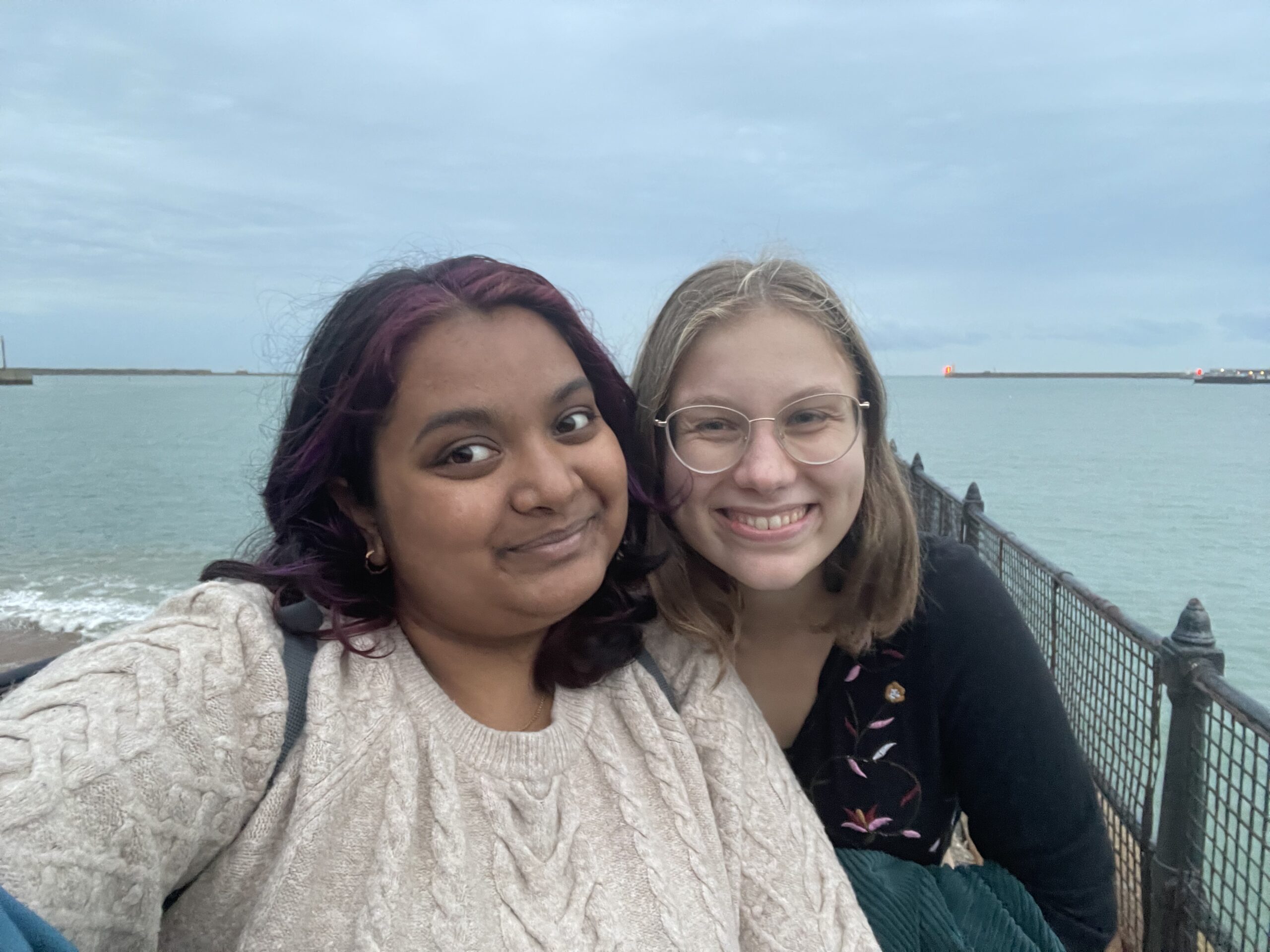
Overcoming homesickness & embracing my solo traveler era
There are four stages of cultural adaptation: the honeymoon phase, culture shock and homesickness, recovery, and adjustment. Some people who study abroad experience all of these phases, and some stay firmly in one or two. Recently, I’ve just come out of the culture shock and homesickness phase. Let’s go into what that looks like for a low-income student of color and how we can manage it.
As a low-income student on a tight budget, I’ve felt more isolated from the friends I’ve made here who don’t have the same concerns. Some of them hold different attitudes about money and notions about what is cheap versus expensive, making travel plans and day-to-day socializing difficult to navigate.
I’m reminded that studying abroad is typically an expensive venture. Before I knew about scholarships like FEA, studying abroad seemed only for the ultra-wealthy. That hasn’t completely changed. Many of the people I meet here are notably wealthier than me and demonstrate how studying abroad is still inaccessible to so many. I’m grateful to have this opportunity because of FEA and Gilman, but there are still not enough people like me pursuing study abroad. I felt lonely, and took these initiatives to overcome it:
1. I have distant relatives here in London who I reached out to and met up with. Though I didn’t know them prior to coming here, I still felt a kinship with them, and being part of their family dynamics helped me with my homesickness.
2. I reached out to friends from my home university who are studying nearby and hung out with them. When you’re constantly spending time with new people, it’s hard to feel like your most authentic self. So spending time with my old friends truly felt like a breath of fresh air.
3. Finally, I reframed my loneliness into a “solo traveler era.” I was always scared to travel alone, but here, I’m trying something new. I’ve only been here for a month, and everyone I’ve met has different goals for their study abroad experience. So it makes sense that I won’t always have a travel buddy, and I don’t want to lose the limited time I have here stressing over finding one—especially when I could just as easily travel alone! I’ve been keeping a list of places I want to visit, and planning to hit two to three spots a week. If I find people to go with, that’s great. If not, that’s okay! Embracing the concept of solo traveling ensures I fulfill all my personal goals of studying abroad and leave here with no regrets.
It’s absolutely okay to let yourself commiserate at first, but remember the only way out is through. Picking yourself back up makes all the difference. Remember, at the end of the day, you’re in a new, exciting place. No matter what is going on around you, that on its own is something to want to make the best of.
Pictured: day trip to Dover Beach with my home friend Eleanor & my solo trip to Chinatown!

